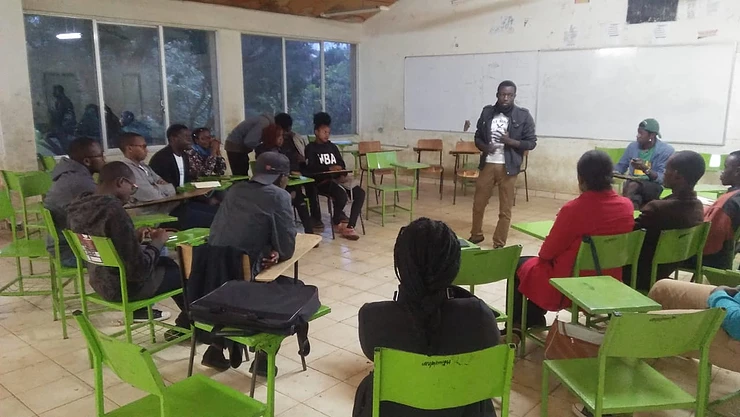The Jomo Kenyatta University of Agriculture and Technology (JKUAT) Red Cross club hosted Ryculture Health and Social Innovation, Uzima Champions and Leap JKUAT Chapter for a mental health forum on 5th June 2019 at JKUAT. The session was structure to focus on depression considering it’s a key issue affecting young people especially university students with recent increase in cases reported.
The discussion was aimed at;
- discussing causes of depression and the contributing factors
- outlining the signs of depression
- guiding the talk about mental health, coping mechanisms and the support systems needed for people having mental illnesses
Narration
Mental illnesses have been in the rise among young people with depression being the most prevalent one. Currently, suicides and homicides have been reported with close relation to depressive tendencies. However, this doesn’t state that depressed individuals are suicidal or homicidal.
Depression is a chronic condition characterized by dull mood, lack of interest in pleasurable activities, changes in appetite, avolition, hopelessness etc. To diagnose depression, the signs and symptoms should have lasted for over two (2) weeks and this can only be confirmed through a professional assessing the patient. This presents another critical issue as most people are self-diagnosing and medicating themselves for depression.
The key contributing factors to depression among the youth are; social pressure, financial hardships, unemployment, relationship strains, social media, academic pressure etc. These point to the fact that individual well-being in normally linked to some external factor as perceived by the society or individuals in relation to others in their circles. It’s important for individuals to have their values and principles aligned so as not to be easily affected by these social influences. As human beings, we are fallible to be swayed as well as desire to have the things perceived to be of value in the society but acknowledging our limits, defining our values and being diligent in pursuit of what we want we can avoid the debilitating consequences of these pressures.
In tackling depression, it is important to have stable close-knit and organic relationships in which the parties are as open and real with each other. This enables them to understand each other, be able to notice when one is having a problem and look out for them. With such relations, individuals will feel at ease knowing they have a support system in place which can prevent them into getting to a depressive episode during tough times. It also helps in speeding up recovery.
“Try to understand the blackness, lethargy, hopelessness, and loneliness they’re going through. Be there for them when they come through the other side. It’s hard to be a friend to someone who’s depressed, but it is one of the kindest, noblest, and best things you will ever do.” – Stephen Fry
Social values are also key in rewriting the narrative about mental health and depression by itself. Most of the stressors that push people to extremes are as a result of societal norms and values which are skewed. It’s therefore important to rewire our brains and change what we give value to in the society. This should extend to cover social stigma that is associated with mental illnesses. When every individual takes responsibility for the well-being of the other, the stressors will be curtailed and as a society we will be more fulfilled. This is because of the sense of belonging, kinder and compassionate care by those around which is essential for individual development.
“Noble deeds and hot baths are the best cures for depression” – Dodie Smith, I Capture the Castle
In severe cases of depression, antidepressant medications are usually prescribed for use however these also have side effects which are undesirable. It’s advisable to consider other forms of management for depression which would aid in remission instead of considering pills as the main line of care.
Losing your life is not the worst thing that can happen. The worst thing is to lose your reason for living. – Jo Nesbo

